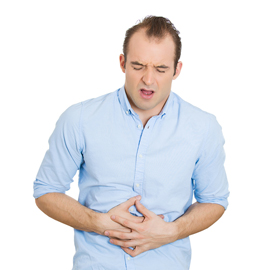Is Your Diet Giving You Acid Reflux?

Diet is a big part of controlling heartburn and avoiding acid reflux surgery, but how do you know what you can and can’t eat? Finding the right diet is a combination of trial and error and common sense. Put simply, some foods give you heartburn, some help prevent it. Finding the right balance is tricky. To understand how to use your diet as a treatment for reflux disease, you need to know more about what causes it.
What is Acid Reflux?
Reflux, or heartburn, happens when the strong acids in your stomach push up into the throat. This occurs because a valve, called the lower esophageal sphincter, relaxes and allows stomach acid to enter the esophagus.
Gastroesophageal reflux disease, or GERD, is a chronic form of acid reflux. When you have GERD, the repeated backwash of acid causes tissue damage to the esophagus and can lead to ulcerations and scarring.
Using Diet to Control Acid Reflux
Diet is a critical part of controlling acid reflux, along with other lifestyle changes. Certain foods make heartburn worse, because they are either acidic or they trigger more stomach acid. Sometimes, dietary triggers are specific to the individual, too. What gives you heartburn may not bother your spouse, for example.
Finding the right diet is a matter of avoiding common triggers and increasing foods that actually help calm the stomach.
What Foods Should You Avoid?
Certain foods are proven to make acid reflux worse. Foods that are heavy with oil or fat, for example, are harder to break down. If you have reflux disease or GERD, you should avoid eating:
- Fatty foods – including fatty meat
- Greasy foods
- Chocolate
- Tomatoes
- Coffee
- Alcohol
- Garlic
- Mint
- Onions
- Spices
You might also consider keeping a food diary. This will allow you to track other foods that upset your stomach. Write down everything you eat and make a note whether it gives you heartburn or not.
Foods to Focus On
Some foods help reduce stomach acids and are good choices for those with chronic acid reflux.
- Lean meat and fish
- Oatmeal
- Whole grain bread
- Brown rice
- Green vegetables
- Potatoes
As a general rule, avoid acidic foods. That eliminates most fruits; however, you can eat bananas or melons.
If diet and lifestyle changes fail to control the problem, the doctor might look for other treatment options like acid reflux surgery.



